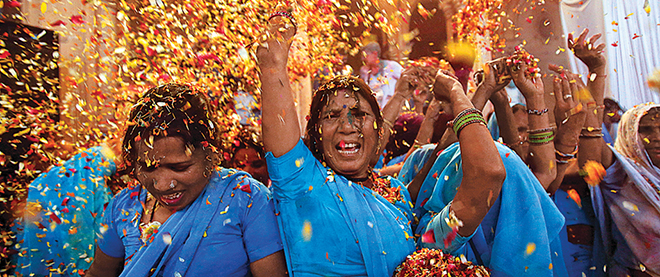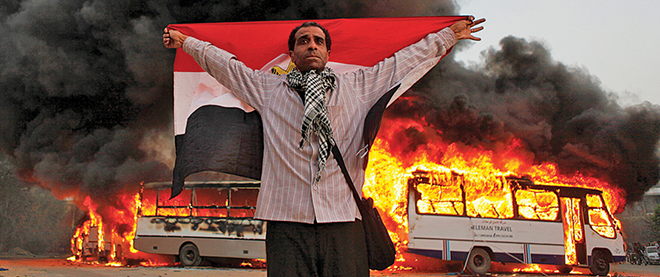Good news, bad news
Pandas arrive from China and parents ‘bubble-wrap’ their kids in Britain
Vivek Prakash/Reuters
Share
Good news

Plumbing the depths
Revelations of kickbacks, bribes and cash-stuffed safes have made the Charbonneau inquiry a living nightmare for Quebec Liberals, who were in power during much of the time in question. But the Parti Québécois government had better reasons than politics to extend the commission by 18 months. Testimony heard so far suggests corruption ran more deeply than suspected in the awarding of public contracts, and those tarnished must have their say (not least former Montreal mayor Gérald Tremblay). This is a shot at catharsis that the province desperately needs.
Tour de force
A Middle East mission many predicted would fall flat has bolstered Barack Obama’s credentials as a statesman. In one trip, the President reasserted U.S. support for Israel while nudging Israeli and Palestinian leaders back toward a peace process. Obama’s speech equating the current plight of Palestinians with the past one of Jews worldwide was particularly poignant—the sort of thing he does better than anyone on the world stage. Whether it’s the start of something momentous remains to be seen. But at least it’s a start.
Animal attraction
Yes, the pandas that arrived from China this week provided the Harper government with a convenient distraction from budget fallout. But the bears must be seen for what they are: a bouquet of flowers from Beijing at a time when Ottawa is navigating choppy diplomatic waters on issues like Chinese ownership of Canadian natural resources. If nothing else, the cuddly ursines make a useful barometer of bilateral relations. If Beijing calls them home, we’ll know something’s wrong.
Bad actors
Just in time for the season premiere of Mad Men, researchers claim they’ve figured out why viewers cheer on some TV characters who do bad things. We’re more likely to set aside moral qualms, they say, if we think a character has some selfless motivation—which explains the enduring popularity of Walter White, the terminally ill protagonist of Breaking Bad, who sells drugs so his family will have money after he dies. Our affinity for Don Draper? Well, that remains a mystery.
Bad news

Your papers, please
The Russian government has evidently heard enough criticism of its attempts to stifle criticism. This week, tax police raided the Moscow headquarters of Amnesty International, as well as a Russian-based human rights organization that has reported on the Kremlin’s efforts to limit dissent. The searches were part of an ongoing crackdown on NGOs that President Vladimir Putin has labelled “foreign agents” funded from abroad to sow discord. The longer we look at the new Russia, the more it looks like the old one.
Slapped down
Fear of backbenchers debating anything abortion-related has officially reached crisis proportions in the Harper government. Why else would it use a committee vote to squelch its own MP’s move to condemn sex-selective abortion? Mark Warawa’s motion called for nothing more than a House resolution deploring the practice, for which polling shows overwhelming disapproval. The courts are practically begging Parliament to address this sort of issue, yet Parliament shrank from the task—for reasons that defy even the logic of crass politics.
Signs of trouble
A report this week alleging that Toronto Mayor Rob Ford has a drinking problem has raised reasonable doubt about his ability to fulfill his duties—however vehemently Ford denies it. Quoting witnesses, council allies, unnamed friends and city hall staffers, the Toronto Star makes a convincing case that substance abuse on the mayor’s part has led to unseemly moments at public events, and generally interfered with his work. If there’s truth to the story, the mayor must get help. Or those close to him must find a way to intervene. His job requires judgment and decorum, and lately he’s shown neither.
Snack attack
This week’s “bubble-wrap-your-kids” award goes to Britain. First, a school in Essex banned baked oat bars that have been cut into triangles (a child was injured by the pointy end of one thrown by his classmate). Then, in east London, a primary school banned kids from playing tag. Good thinking, edu-crats: there’s no better protection for kids than rectangular snacks. And those kindergarteners will have lots of time to play tag when they grow up.